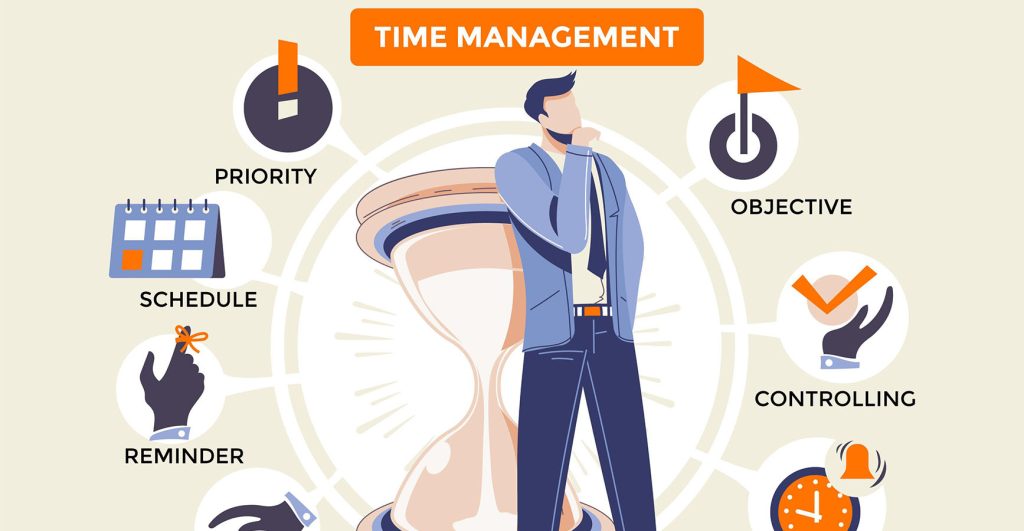Introduction: Time management is a critical skill for students juggling coursework, assignments, and personal responsibilities. With effective time management, students can reduce stress, meet deadlines, and achieve academic success. This blog will explore seven essential time management strategies to help students stay on track and make the most of their study time.

- Set Clear Goals: Start by setting clear, achievable goals for your academic journey. Break down larger goals (like completing a semester) into smaller, actionable tasks (like completing weekly assignments). Use the SMART criteria to ensure your goals are Specific, Measurable, Achievable, Relevant, and Time-bound.
- Create a Daily Schedule: A daily schedule provides structure and helps prioritize important tasks. Use a planner, calendar app, or time-blocking technique to organize your day. Allocate specific time slots for classes, study sessions, and personal activities. Stick to your schedule as much as possible, but remain flexible for unexpected changes.
- Prioritize Your Tasks Using the Eisenhower Matrix:
- Urgent & Important: Do these tasks immediately.
- Important but Not Urgent: Schedule these tasks for later.
- Urgent but Not Important: Delegate if possible.
- Not Urgent & Not Important: Eliminate these tasks.
This approach ensures that you focus on high-priority assignments and avoid wasting time on less critical activities.
- Avoid Procrastination: Procrastination is a major obstacle for students. Combat it by using the “Two-Minute Rule” — if a task takes less than two minutes to complete, do it right away. Break down larger assignments into smaller tasks and set deadlines for each. Celebrate small wins to stay motivated.
- Limit Distractions: Distractions can derail even the most organized schedule. Find a quiet, well-lit study space free from social media, TV, and noisy environments. Use productivity apps like Focus@Will or Freedom to block distracting websites and apps during study sessions.
- Apply the Pomodoro Technique: The Pomodoro Technique increases productivity through short bursts of focused work followed by breaks. Work for 25 minutes (one “Pomodoro”), then take a 5-minute break. After four Pomodoros, take a longer break of 15-30 minutes. This technique maintains concentration and prevents burnout.
- Reflect and Adjust: At the end of each week, review your progress. Identify areas where you struggled to meet deadlines or experienced stress. Adjust your schedule and task priorities accordingly. Continuous improvement is key to mastering time management.
Conclusion: Effective time management is a vital skill that can enhance your academic success and reduce stress. By setting clear goals, scheduling daily tasks, prioritizing assignments, and using proven techniques like the Eisenhower Matrix and the Pomodoro Technique, you can make the most of your time. Start with small changes today, and you’ll see a big difference in your academic journey.
